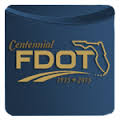
Research Projects
Research Assistant FDOT Alternative Contracting Research (RFRP-14/15-001) January 2015 – August 2016 ($130,000)
Title: Evaluating Performance of Alternative Contracting Methods for FDOT Construction Projects
Similar to the NCHRP project, FDOT also wants to find the merits and deficiencies of some alternative delivery systems (e.g., Design-Build, Incentive/Disincentive, Lump-Sum Contracting, A+B Bidding, and No Excuse Bonuses) being used by different districts in Florida. To identify the advantages and disadvantages of each alternative delivery system, the research team created a set of survey instruments to filter the people who do not have any experience in those delivery systems and then get the contact of the selected people through the surveys. After that, the most experienced contractors, designers, and FDOT officials are to be interviewed in person. The final deliverable will be a report on the advantages and disadvantages of the alternative contracting methods regarding cost, time, and quality. According to the downside of each method, some suggestions will be provided to improve the use of these methods. Additionally, the research teach is going to perform an analysis on what delivery system is suitable for what type of project to aid the FDOT officials in choosing a proper delivery method. In other words, we are attempting to identify the critical factors dictating what a specific alternative delivery system is best and provide feedbacks to the FDOT officials about the deficiencies brought up by different parties (e.g., owner, designer, and contractor)
Research Assistant NCHRP15-46 Research Project August 2012 – May 2014 ($400,000)
Title: Design Management Guide for Design-Build and Construction Manager / General Contractor Projects

NCHRP Report 787: In this research project sponsored by the Transportation Research Board, we investigated and synthesized the advantages and disadvantages associated with the alternative delivery systems: DB and CMGC. The traditional Design-Bid-Build (DBB) delivery approach has been criticized as it does not support smooth and effective communication and collaboration among contractors, designers, and owners, which creates an impediment for projects to be completed in a shorter duration. As a result, the alternative delivery methods are devised to facilitate communication and encourage cooperation among the parties, which lead to smooth project completion. However, the concepts are adopted differently in terms of the usage of these methods to real projects by state Departments of Transportation (DOTs). Surprisingly, the research team discovered that several state DOTs have not implemented any of these alternative delivery systems due to the lack of either needed legislation or relevant expertise and experience. The team discovered a number of merits as well as deficiencies about CMGC and DB in current practice, based on which we wrote a guidebook with our discoveries and suggestions on how to better use these methods.
To ensure the accuracy and reliability of the identified information regarding CMGC and DB, we performed the first round survey with the purpose of identifying the most experienced state DOTs. After selecting the most experienced state DOTs, we conducted a follow-up survey to identify the specific officers who have most experience in CMGC and DB delivery methods and their contact information was obtained for the next round face-to-face interview. In the third round interviews with the DOT officials, the team chose some visible and successful projects which completed under either CMGC or DB for case studies. The final deliverable was a guidebook, promoting and navigating all DOTs to implement those alternative delivery methods.
Research Assistant FDOT Research Project (Contract No. BDK75 977-56) August 2012 – June 2014 ($110,000)
Title: Best Practices for Quality Management of Stormwater Pipe Construction
Abstract: Stormwater pipe systems are integral features of transportation construction projects. Pipe culverts direct stormwater away from roadway structures and towards designated discharge areas. The improper installation of a pipe culvert can result in costly repairs, timely delays, and/or hazardous system failure. The Florida Department of Transportation (FDOT) has firm requirements for the proper installation and final inspection of pipe culvert systems. However, there exist problems with the consistent and accurate use of laser profiling equipment, and there is no standardized testing procedure for equipment operators. With the goal of developing a certifiable exam, two preliminary exams were produced to demonstrate operator knowledge of installation and inspection procedures and operator proficiency in equipment use. The exam was required to consist of a written portion based on the latest FDOT Specification on post-installation pipe culvert inspection, as well as a field course comprising a pipe run with known defects to be located and measured. With the intent to aid in the establishment of a standardized testing procedure and training program, this project took the initial steps in validating equipment use and operator knowledge and further educating those receiving and interpreting laser profiling output data.

